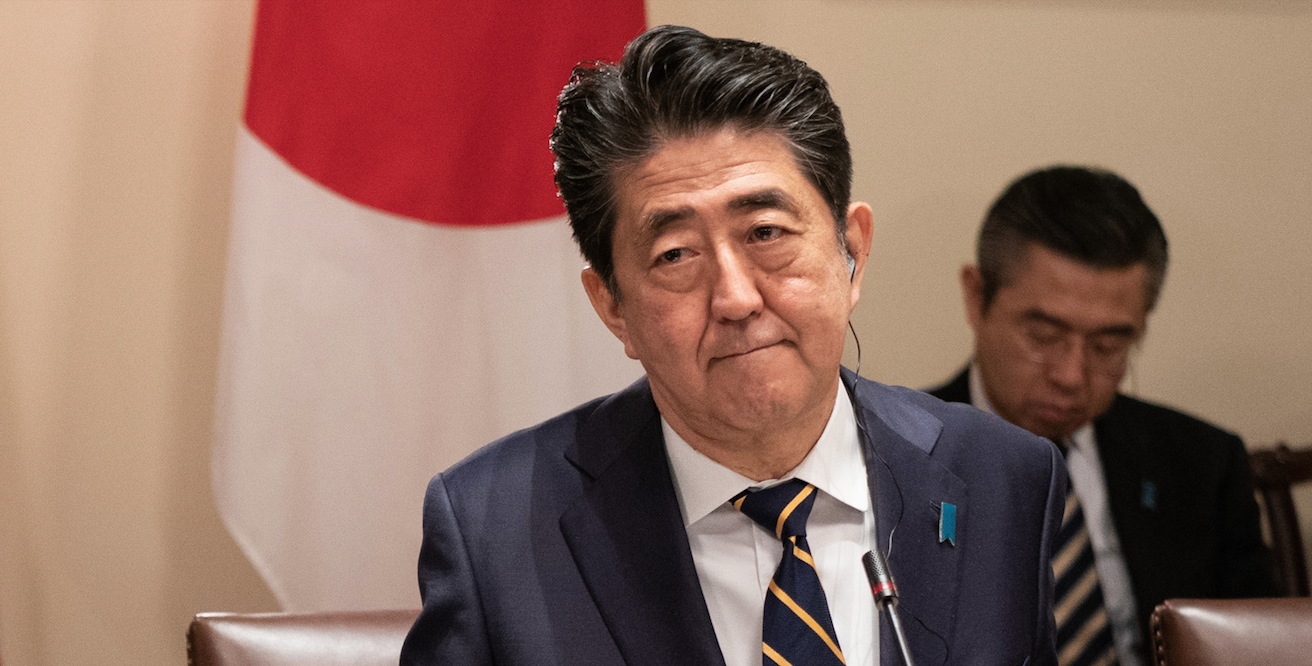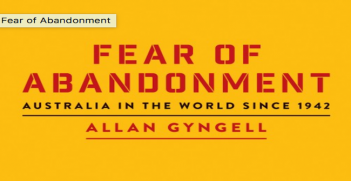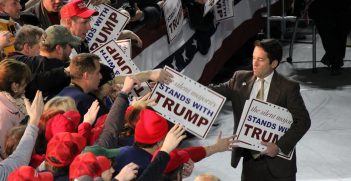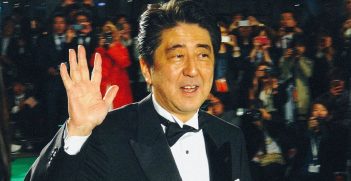The End of the Golden Weather for Abe’s Diplomacy?

Despite Japanese Prime Minister Abe Shinzō’s commanding victory in the recent upper house elections, foreign policy challenges in the next 18 months could undermine his legacy of competent statecraft.
Abe Shinzō has been Japan’s most active foreign policy prime minister. He is also arguably one of the most effective, using diplomacy to burnish his internal popularity. Abe’s attempts to manage Japan’s critical relationships with the United States and China have gone about as well as can be expected given the difficult circumstances. Growing US-China tensions have also given Japan a degree of international salience in the context of a global leadership void. Abe has also expended valuable energy on bolstering new relationships throughout the Indo-Pacific with various regional and strategically important middle powers. Enhanced relations beyond Northeast Asia and the West could pave the way for future economic opportunities and the cultivation of new security partners to uphold regional balance for Japan.
Particularly notable is that Japan completed its move from being a reluctant trade follower to something of model trade advocate under Abe. Japan’s commitment to the Comprehensive and Progressive Agreement for Trans-Pacific Partnership (CPTPP) and the Japan-EU Economic Partnership Agreement (JEEPA) were motivated by short-term commercial interests as well as a desire to shore up a global trading system that has served Japan well. Even without the United States and China these agreements represented a major expansion of international free trade and place Japan in an advantageous position to help write the rules of future trade and benefit from trade currents. This is especially true with the Regional Comprehensive Economic Partnership — an ASEAN-centred trade agreement — moving forward, and the CPTPP likely to add new members like Thailand and Colombia.
Japan’s economic diplomacy under Abe has also been about more than trade. Japanese private investment in Asia as well as public concessional loans and aid for infrastructure implementation remain ahead of China despite the high profile of the Belt and Road Initiative. Japan has also become a promoter of “high quality” investment and infrastructure deployment. The “high quality” infrastructure norms are not just about safety, resilience and value for money but also transparency in implementation and ecological and inclusive growth. The concepts, designs and technologies pertinent to “Smart Cities” cultivated in Japan are now being “exported” to Southeast Asia as part of this high-quality infrastructure agenda.
Domestically the seeds for arresting and mitigating the impact of demographic decline are being planted in Japan. This comes from a mixture of increased immigration, greater numbers of working women and pensioners and overseeing the investment in automation through robotics and AI. Economically, “Abenomics” has also been a qualified success. However, many see demographic adaptation as too little, too late. Japanese companies also continue to hold on to their cash instead of investing domestically, while citizens still lack the long-term assurances on social security that would encourage greater spending of disposable income, including for child rearing. Public scepticism of greater military build-up and activity overseas despite increased security fears also lingers as a major barrier to Abe’s vision of Japan remaining a “first tier” geopolitical power.
Abe’s recent commanding victory in the 2019 House of Councillors election potentially gives him two more years of political stability to tackle the remaining internal issues. However, the problems that Abe has faced so far pale in comparison to what potentially lies ahead. The effects of four specific challenges in the year ahead, if not handled well, could cascade on to each other, exacerbating the difficulty of resolution: and of Abe leaving a definitively positive legacy.
First, Trump may not be able to resist connecting post-election trade talks to the security alliance and asking for more or being willing to give less. Abe has so far managed to placate Trump on trade by purchasing billions of dollars of American gas and weapons to decrease the trade deficit, increasing investment and production of automobiles in the United States to create jobs, as well as making promises of infrastructure investment. Japanese policymakers understand they cannot delay further, however, and appear resigned to reducing tariffs on US agricultural goods to levels similar to those granted to CPTPP members, possibly in exchange for reduction in US tariffs on Japanese automobiles.
The difficulty of resolving the trade issue could potentially be exacerbated by the following three diplomatic flashpoints, and vice-versa.
A second potential flash point is how Japan reacts to the United States’ formation of a “coalition of the willing” to deter Iran from taking more aggressive actions around the Strait of Hormuz. Currently, Japan could utilise legislation allowing “maritime security actions” (kaijō keibi kōdō) to send Japan’s Self-Defense Forces (SDF) to protect Japanese vessels or foreign vessels transporting important resources bound for Japan. But if kinetic conflict of some kind takes place or becomes likely, then Japanese government options quickly disintegrate due to legislative and constitutional restrictions on SDF engagement in proactive uses of force. These options would vanish, however, precisely as the Trump administration will want and need more assistance from any “coalition of the willing.” Japan after all has significant and world-leading mine-sweeping capabilities that could be of major value in a Hormuz contingency.
Trump also seems to be using the Iran issue as a test of faith for allies to show the effectiveness of his anti-free riding diplomacy. Given that 1800 vessels per year traverse the Hormuz Strait on the way to Japan and that US Secretary of State Pompeo recently publicly name checked Japan, a firm “no” is hard to imagine. At the same time, domestic sentiment is already divided over dispatching the SDF. Defying public sentiment to satisfy Trump will have political costs for Abe, especially if Hormuz becomes more dangerous.
Third, Host Nation Support (HNS) negotiations are set to start this year. These are the contributions governments make to support the presence of US military forces in their country for assurance and deterrence. Japan is relatively better positioned than most US allies, with Japan offsetting up to 86.4 percent of stationing costs. However, if Trump sticks to his principle that allies should pay stationing costs plus 50 percent, this could become a major issue for Abe, especially if Trump does not get his desired responses from Japan on trade or Hormuz coalition building. Abe could once again find himself squeezed between Trump and Japanese public sentiment, as the latter opposes more spending on HNS or further major weapons purchases to mollify Trump.
The fourth and final challenge is a “bad” North Korea deal. One of the greatest fears in Tokyo is a deal where Trump offers North Korea security assurances and changes in regional military posture in exchange for the elimination of ballistic missiles capable of delivering nuclear payloads to the United States, while still allowing North Korea to keep similar missiles that keep Japan in range. Such an outcome would render a swift and definitively-negative judgment of Abe’s Trump diplomacy. This has involved passive responses to US tariffs against Japan so far, promises of deficit-reducing purchases of American gas and weapons, trade concessions and production and infrastructure investment into America as well as multiple meetings between Abe and Trump replete with awkward interactions and statements impugning Japan’s diplomatic integrity.
Abe’s sometimes obsequious diplomacy would no longer be seen as clever statecraft but equal parts naivete and humiliation. Such an outcome may be less likely to happen if Japan responds positively to Trump’s demands on trade, Iran and HNS. However, the domestic political costs of doing so could also be high for Abe.
Dr Corey Wallace is Einstein postdoctoral fellow at the Graduate School of East Asian Studies at Freie Universität Berlin and visiting research fellow at the Faculty of Policy Management at Keio University, Japan.
This article is published under a Creative Commons Licence and may be republished with attribution.





